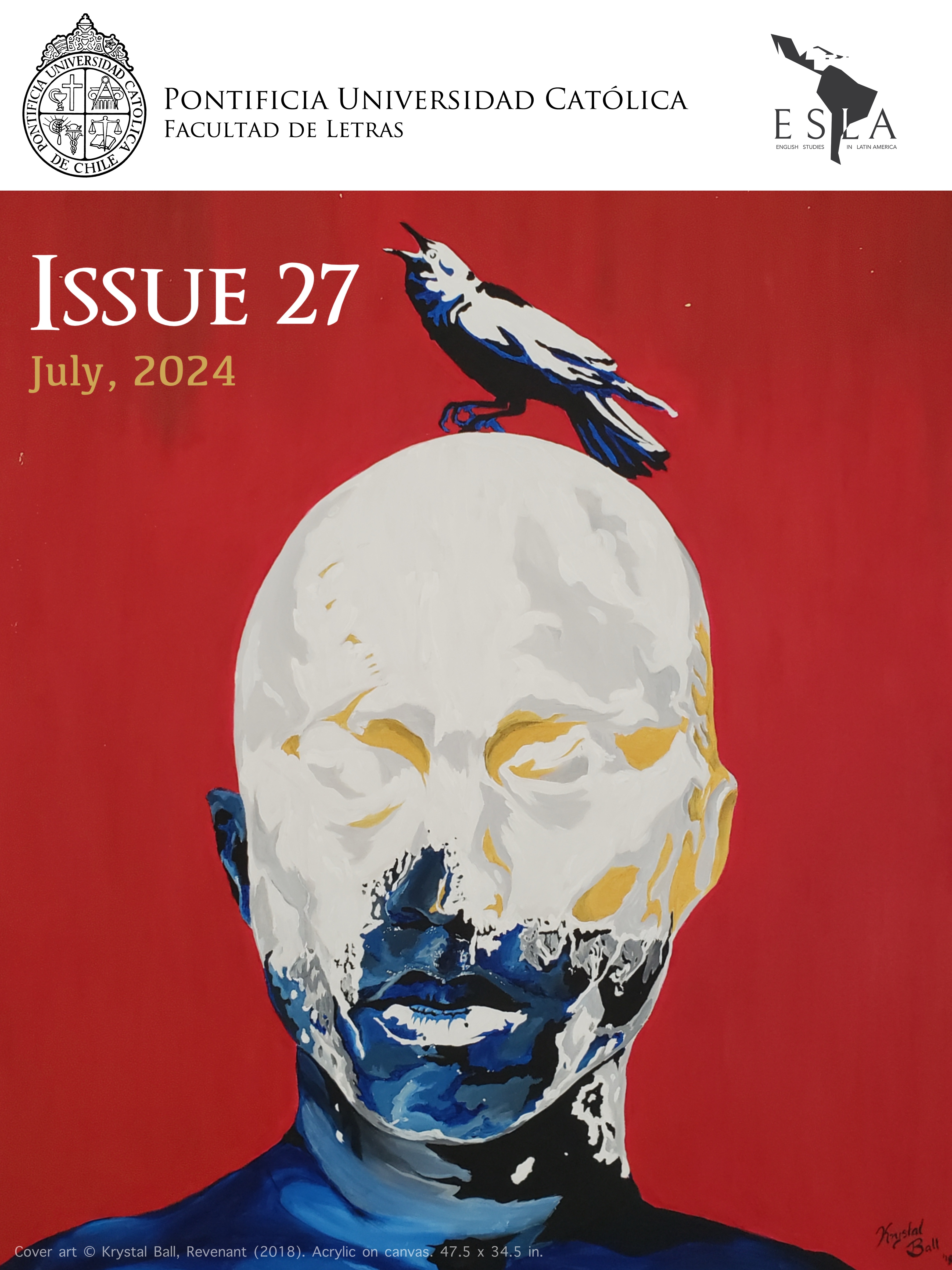The Contrapuntal Melophrasis of Bob Marley’s “Buffalo Soldier” in Derek Walcott's Omeros
DOI:
https://doi.org/10.7764/ESLA.83262Abstract
In his long verse poem Omeros, Derek Walcott sets the reception of Bob Marley’s “Buffalo Soldier” on a Caribbean shore. The fisherman Achille washes his canoe while he remembers the song, before seeing himself acting in a western-like phantasmagorical movie where he kills palm-tree Indians with his Winchester oar. At the end of the nineteenth century, the historic Buffalo Soldiers participated in the US Frontier Wars, and in the colonial occupations of Cuba and Puerto-Rico. I posit that Achille’s reenacting of the song constitutes a melophrasis, the verbal representation of music (Edgcombe; Vilmar), which complements the lyrics by revealing its counterpart colonial narrative. Moreover, the melophrasis works in two ways: it reshapes our understandings of Marley’s music and it sharpens the reception of Omeros’s aesthetics. Thus, we read the poem contrapuntally (Saïd), epitomizing Marley’s and Walcott’s common quarrel with history. This contrapuntal melophrasis also depicts how Omeros’s poetics reverberates Walcott’s appropriation of reggae aesthetics (Dawes). Stemming from an analysis of “No Woman, No Cry,” the aural use of caesuras exposes Walcott’s admiration for Marley’s sophisticated and popular achievement.
Downloads
Downloads
Published
How to Cite
Issue
Section
License
Copyright (c) 2024 English Studies in Latin America: A Journal of Cultural and Literary Criticism

This work is licensed under a Creative Commons Attribution-NonCommercial-NoDerivatives 4.0 International License.


